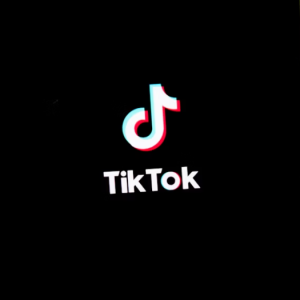Podcasts are a series of episodes of audio programs that customers can digitally stream and play at their convenience. Generally, podcasts are free of charge to the customer.

Podcasts have become a trending marketing channel—especially those in the niche of podcasts for entrepreneurs. Over 48 million people tune into over 80,000 podcast shows per week. Not surprisingly, podcast presence development is increasingly trendy in building a brand.
Podcasts are an excellent way for entrepreneurs to educate and promote their products and services to their audience. You don’t have to learn how to make a podcast yourself in order to reap the value from already established podcasts. Fostering partnerships are a solid method of reaching more target audiences. This piece will briefly explain how to find the right podcast hosts to partner with and the rules of etiquette for preparing for podcast shows.
The 5 Dos and Don’ts Of The Perfect Podcast Partnership
1. Organize Prospective Podcasts

You must research podcast shows that align with your industry, share your target audience, and capture your interest. Podcasts for entrepreneurs are extremely relevant these days, but to get more specific than that, you may want to target a specific type of entrepreneur.
A great place to start your research is Google. Some terms to search are: “the category of the industry + podcast”, “industry keywords + podcast”, and “competitor brand name + podcast”.
This search is likely going to yield huge results; you can narrow down this search to podcasts within the past year by adding this filter to your settings. iTunes and Spotify are other platforms to research podcasts.
Once this search is complete, the next step is to filter through your results by using the following prong:
(1) Is the show active?
(2) Does the show have your target audience?
(3) Does the show allow guest speakers?
Researching the mission and purpose of each podcast will give you the insight to answer these questions. If there is a blog page, this may provide information as to who the target audience is.
Once you have zero in on the podcasts that answer, “yes” to the prong, evaluate the podcasts against the benefits you would receive as a result of the podcast. Such considerations include the value you would receive from the podcast audience.
Make a list of the websites of the podcasts you believe are a great fit (prospectives) for your brand on a spreadsheet.
This preparation will pay off in spades when you find the right podcast to guest on—iTunes is a rank one website according to Forbes, meaning that any founder featured on a podcast with a description will see a boost in the SEO ratings of their brand.

2. Reach Out
When your list of prospective podcasts is complete, the next step is to reach out to the podcast host.
When drafting the email to the host, there are several tools to utilize to make your offer stand out.
• Find common ground (from the podcast mission and blog posts)
• Provide brief summaries of 3-5 podcast topics
• Mention the benefit the host’s target audience would receive from your insight
• Keep your email simple and straightforward
The keys to a successful email are to draft an email that motivates the host to open and read the email in its entirety, briefly expand your knowledge and angle, and capture the host’s attention and show that you are trustworthy to collaborate with. You also want to be sure to minimize any doubts or concerns the host may have about your background or audience disinterest.
Think of the email as a brief elevator pitch moment that is typed, rather than face-to-face; sell yourself (without being arrogant) and make connections.
3. Follow-Up
If you don’t hear back from a podcast host within a reasonable time after you send your email, follow up. Your persistency will impress the host and may lead to future prosperous opportunities. In addition to a courteous follow-up email, take initiative by setting up the meeting on application software. There are free resources such as Google Meetup and Calendly.
Make sure that your follow-up communication to your desired podcast hosts focuses on the value that you can bring to the table for them and their audience. A podcast that invites industry-relevant, credible sources establishes trust in its audience. This keeps the audience listening because they know that they can gain accurate information and informative insights from each episode.
Therefore, your follow-up emails should include all the elements of this template:
-a clear subject line
-a friendly greeting
-a reminder of your original message
-a CTA that prompts the reader to respond
With these steps in place, you’ll gently push your message to the top of your recipient’s inbox without coming across as too pushy.

4. Polite Podcast Etiquette
When preparing for podcasts, it is crucial to undergo processes beforehand to ensure the show proceeds as smoothly and professionally as possible. Follow this framework to help make that happen.
[BEFORE the show]
First, make sure you have all of the necessary equipment and that it is all in excellent condition. Podcast equipment includes
-a USB microphone
-a digital connection
-recording software
Do not assume that outdated equipment will suffice without prior testing.
Second, organize your presentation and go over it with the podcast host. Before you begin outlining your speech, learn the status of the podcast audience to determine how to best reach them. Make sure you have particular speaking points you are seeking to hit and note if there are any topics you prefer to avoid.
Your final speaking point should be a call to action and include how to contact you for services or products. Review your speaking points with the podcast hosts so they are not caught off guard.
[DURING the show]
Find a quiet area where you are certain you won’t be disturbed for the duration of your interview.
When it is time to record the show, remain energetic, and emphasize your call to action.
[AFTER the show]
After recording, edit and save the audio. Then, send a “thank you” email to the podcast host. The email should include a backup recording, a recap of the points discussed, offer assistance to promote the show and ask for any connections or recommendations for other relevant podcasts.
5. Consider Hosting
You’ve learned how to make a podcast appearance that will leave a positive and lasting impression on both the host and their audience.

If you are interested in further promoting yourself and establishing brand awareness and online authority for your business, then learning how to make a podcast is also a great idea. Many hosts of podcasts for entrepreneurs establish mutually beneficial partnerships wherein both parties appear as guests on one another’s shows. This allows both sides to bring value to new audiences while getting great exposure for free.
Advertising revenue for podcasts is expected to hit $2 billion within the year of 2022, and according to Forbes, this mass medium shows no signs of slowing.








